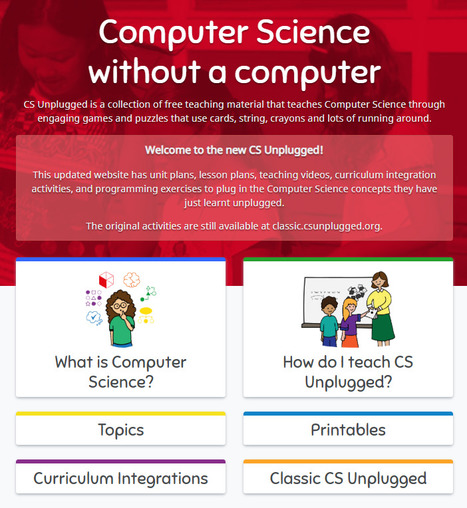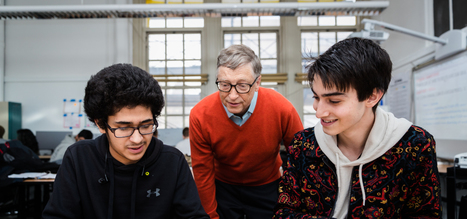 Your new post is loading...
 Your new post is loading...

|
Scooped by
John Evans
|
"In issue 11 of Hello World, we take an in-depth look at inclusion and diversity in computer science, with stories from educators who have created inclusive environments for their learners. We also have lesson plans and activities that you can try with your students today.
* Astro Pi Mission Zero in action
* An accessibility guide designed to help make CoderDojo clubs an inclusive environment for all
* Techniques for running CS professional development workshops
* 5 takeaways from Scratch Conference Europe and much more..." Download Free PDF

|
Scooped by
John Evans
|
An instructional coach shares how she and a fellow teacher embedded literacy lessons in his computer science class.
"Computing is an integral part of every aspect of our lives, from how we connect with each other to the way we do our jobs and get around. Computing is the number one source of all new wages in the U.S. economy and there are currently 500,000 open computing jobs across the country. Yet, according to a Code.org report, only 15 states require all high schools to offer computer science. Many parents, educators, and education institutions are calling for computer science to be a high school graduation requirement. As one commentator pointed out: Schools teach math to students regardless of whether they want to become mathematicians because it is foundational. The same is true of computer science. There are a number of benefits to taking computer science in high school."
Via EDTECH@UTRGV

|
Scooped by
John Evans
|
I recently wrote to the Ontario Ministry of Education to obtain female and male enrollment information for Ontario’s high school Computer Studies courses1.
Considering the number of Computer Science (CS) initiatives in K-12 education and the desire to ensure equity within these initiatives, educators, policy makers and researchers should be considering these numbers in an effort to uncover the causes and impact of the profound under-representation of females in high school CS.
I have shared the enrollment numbers below, but before scrolling down, I would encourage readers to first explore some research and perspectives surrounding gender and computer science enrollment. It is a complex issue that includes a number of influences spanning economical, historical, political, psychological, and social domains.

|
Scooped by
John Evans
|
The Finns are pretty bemused by Americans’ preoccupation with whether to put iPads in every classroom. If a tablet would enhance learning, great. If it wouldn’t, skip it. Move on. The whole thing is a little tilting-at-windmills, anyway.
That was the gist of the conversation one recent morning at the Finnish Embassy in Washington, D.C., where diplomats and experts gathered to celebrate the country’s education accomplishments as Finland turns 100. And Americans could stand to take notes. (Yes, from Finland—again.)
Coding and programming are now part of the curriculum in the Scandinavian country, and they’re subjects kids tackle from a young age. But unlike in some parts of the United States where learning to code is an isolated skill, Finnish children are taught to think of coding and programming more as tools to be explored and utilized across multiple subjects.
That mindset aims to accomplish a couple of things: to make coding and programming accessible to kids with a variety of interests, and to show students why understanding how technology works is relevant to their lives by linking its use to a multitude of activities.

|
Scooped by
John Evans
|
In the 10 months since Girls Who Code announced a set of policy recommendations aimed at closing the gender gap in K-12 computer science, the national nonprofit has been working with states to promote legislation that would help measure the extent of the gender disparity in U.S. classrooms.
On Wednesday, Washington became the first state to get on board with Girls Who Code’s policy agenda when Gov. Jay Inslee, a Democrat, signed into law a bill written with the expressed intention of closing the gender gap in computer science fields.

|
Scooped by
John Evans
|
Cambridge, MA—MIT is in the midst of a $1-billion effort to reshape how it teaches computer science, in what some say may be a model for other colleges. But the effort has has also drawn protests by some students and professors, who are questioning how well ethics will be integrated into the effort and are criticizing the influence of a controversial donor.
Those mixed feelings were on display this week as the university hosted a three-day celebration of its planned College of Computing. The event included a back-flipping robot modeled on a cheetah and other marvels of digital engineering, as well as planned appearances by former Secretary of State Henry Kissinger and former Google CEO Eric Schmidt. It also sparked protests by students and professors, including a “teach-in” questioning how well ethics will be integrated into the effort and criticizing the influence of a controversial donor.
Two big ideas drive MIT’s new college. First is that MIT needs far more computer-science professors to meet the demand by students and researchers. Second, coding is no longer a department to put off in a corner, but a toolset that can be applied to every academic discipline. And that means making sure everyone writing computer code also pays attention to the cultural and ethical implications of their tools, the effort’s leaders say.
“It’s turning computer science into a lingua franca,” said Sanjay Sarma, vice president for open learning at MIT, in an interview. “I think students will soon all learn English, Spanish and Python.”

|
Scooped by
John Evans
|
Teaching Computer Science at school just got easier as Microsoft is making a 30-hour curriculum, targeted at students in the age range 11 to 16, available as a free download.

|
Scooped by
John Evans
|
The British Columbia Institute of Technology (BCIT) – the post-secondary institution recognized for integrating education and industry – is announcing a partnership with Microsoft Corp. and its Technology Education and Literacy in Schools (TEALS) program to teach foundation computational skills for BC high-school students. This partnership recognizes the value of exposing young learners to the jobs of the future while equipping them with the appropriate knowledge and skills for success in the future tech workforce.
With support from the BC Ministry of Education and BCIT, the BC branch of TEALS has already educated more than 400 students across four BC high schools. Credit: Microsoft
Microsoft TEALS exists because many high schools want to offer computer science courses but often don’t have teachers who are trained on the subject. To fill this gap, TEALS volunteers work with classroom teachers to team-teach students, and to equip instructors with the knowledge to teach students on their own.
Computer Science without a computer
CS Unplugged is a collection of free teaching material that teaches Computer Science through engaging games and puzzles that use cards, string, crayons and lots of running around.
This updated website has unit plans, lesson plans, teaching videos, curriculum integration activities, and programming exercises to plug in the Computer Science concepts they have just learnt unplugged.
The original activities are still available at classic.csunplugged.org.
Via NextLearning

|
Scooped by
John Evans
|
Forecasts report that computer science skills will be essential for the future workforce, creating a need for K–12 experts to work harder to incorporate such lessons into the curriculum.
According to the App Association, there will be approximately 1 million unfilled computing jobs in 2024. Research conducted by the Bureau of Labor Statistics has found that number could be reached by 2020. These findings have put a fire underneath educators and K–12 organizations to refocus efforts to teach computer science skills.
“We don’t just need computer science graduates to fill computing jobs; we need people with technical abilities to fill jobs in almost every industry,” Victoria Espinel, president of Software.org: the BSA Foundation and chair of the World Economic Forum’s Global Future Council on the Digital Economy and Society, writes in a blog post. “Those jobs will be created by advancements in software, and kids need to prepare now for those possibilities. They won’t all need computer science degrees, but basic digital literacy will be essential.”

|
Scooped by
John Evans
|
"The State Board of Education is expected to adopt California’s first-ever computer science standards Thursday afternoon. The standards, while not mandatory, are expected to increase the number of computer science classes taught in California classrooms.
“There is a consensus that today’s student needs to understand how the digital world works, in the same way they need to know how the natural world works, so they study science, or how the cultural and political world works, so they study history,” said state board member Trish Williams.
If the standards are approved, California will join six other states with computer science standards for K-12 students, according to Code.org, a non-profit organization that promotes computer science education. Twenty-one other states have passed policies that provide computer science standards for high school students."

|
Scooped by
John Evans
|
Computer science isn’t just about writing programs. Students need to learn concepts such as computational thinking, algorithms and efficiency.
Here we have provided a short unplugged activity where students will use features and yes/no questions to build a decision tree. Students are encouraged to focus on efficiency and build a tree with the shortest number of steps. The activity is based on classifying the planets, so is suitable for a computer science or a science class.
There are a couple of extension options at the end for students who move through this more quickly or for those that need a challenge.
This activity is best done in groups, so students can discuss which questions and what order make for the most efficient process. Working in a group encourages them to articulate their thoughts and listen to others’ views, rather than just using trial and error.
Students will write an algorithm for classifying different planets. We are going to start small, with just 4 planets.
Instructions
|

|
Scooped by
John Evans
|
Computer science is a foundational subject in today’s world that will benefit students in any career path. It not only gives them room to flex their creativity but also equips them with the tools to tackle some of the world’s most pressing problems.
How computer science is used and applied in the real world is a crucial part of learning computer science. That is why we’re focusing on #CSforGood as the theme for the Hour of Code this year. We can help students understand some of the challenges that people around the world face and inspire them to think more deeply about the role computer science can play in creating a more equitable and sustainable world.

|
Scooped by
John Evans
|
In Issue 10 of Hello World, we take an in-depth look at maths and computer science, with stories from educators who take advantage of the links between the two topics. We also have lesson plans and features written by educators around the world.
Introducing design journals for Key Stage 2 pupils
Code clubs for teachers: offering extra support to educators
Using data to keep school plants thriving
The value of computing for two- to four-year-olds

|
Scooped by
John Evans
|
There’s little doubt that the introduction of computer science at a primary level is a good thing. A working knowledge of IT has become an essential requirement across almost every sector. We can’t do even many of the most basic things about the home without using technology. But here’s the question:
Is the introduction of computer science at primary level enough?

|
Scooped by
John Evans
|
How one district makes computer science and computational thinking a priority for all students, regardless of background

|
Scooped by
John Evans
|
"Create your own Google logo for Earth Day" is part of the "Create your own Google logo for Earth Day" activity from CS First, one of the many Google initiatives focused on computer science education.

|
Scooped by
John Evans
|
In the ever-changing technological world, computer science is not only becoming more prominent in classrooms, but a staple in education. Computer science combines the principles of technology and use of computers to educate learners on both the hardware and software of computer technology. The field of computer science is exceptionally diverse, as the skill sets are in-demand across practically every industry—serving as a lucrative and stable career pathway.
In addition, computer science has many facets, meaning educators can leverage various components of the field to reach students across all levels and learning abilities. With technology present in almost every classroom, educators have a greater opportunity to implement computer science lessons throughout the curriculum. This provides students with the knowledge and skills required to help follow job market trends when they graduate.

|
Scooped by
John Evans
|
Looking for innovative ways to bring computational thinking and computer science skills to your STEM classes? MINECRAFT: EDUCATION EDITION might be just the teaching tool for you, whether you’re an experienced player or are just learning about Minecraft.
Below are all the resources you’ll need to kickstart a game-based learning adventure in your classroom—no advanced degree in gaming required.

|
Scooped by
John Evans
|
"CS Unplugged is a collection of free teaching material that teaches Computer Science through engaging games and puzzles that use cards, string, crayons and lots of running around."

|
Scooped by
John Evans
|
There are many links between Computing and Crafts, not least that both are about making things. Any craft instructions that explain in detail and in a step-by-step way can be used as a way of introducing the ideas behind algorithms to pre-coders. In the case of physical computing you can build computing power in to craft-based artefacts, adding interaction to them. Craft and computing then become intertwined.
Here we give some links between computing concepts and crafts, giving ways to introduce computing concepts using crafts.

|
Scooped by
John Evans
|
Educators from four New York state school districts met at Gates Hall July 23-24 to discuss how to implement meaningful and consistent computer-science curricula, part of a two-year project with CSforALL.

|
Scooped by
John Evans
|
I was 13 years old when I fell in love with programming. My school had just become one of the first in the country to get a computer terminal. The machine was huge and slow, and it didn’t even have a screen—but I was hooked. My friends and I would spend hours creating new programs and plugging away in BASIC.
That introduction to computer science changed the course of my life. I recently visited a high school that hopes to do the same for young people in New York.

|
Scooped by
John Evans
|
Teachers, parents, and librarians alike have used CS First. No computer science experience needed. Instructional videos guide students through each activity, allowing you to work with students individually.
|



 Your new post is loading...
Your new post is loading...

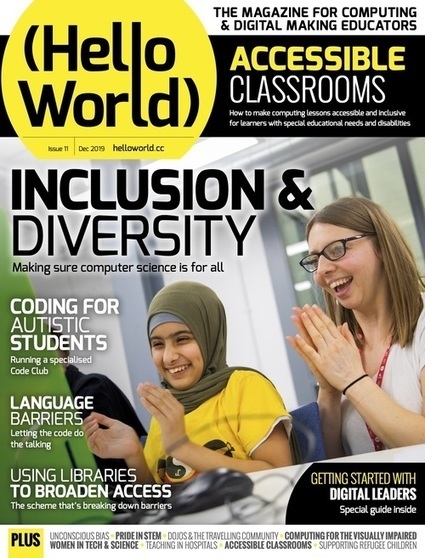




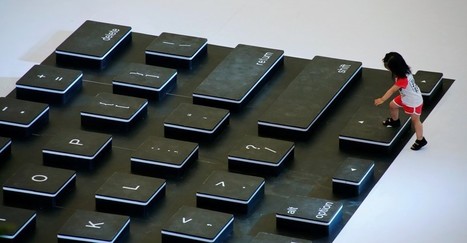


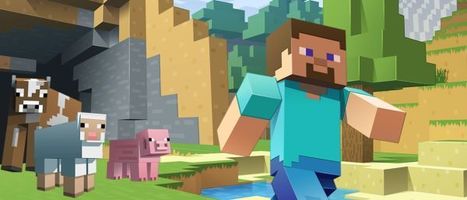
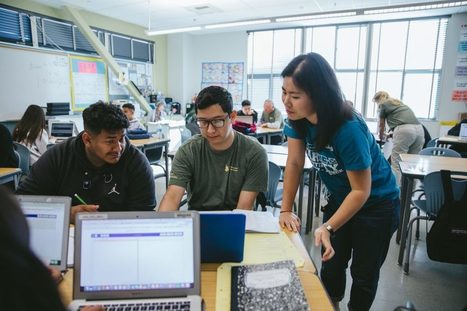
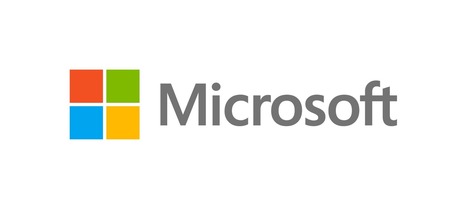



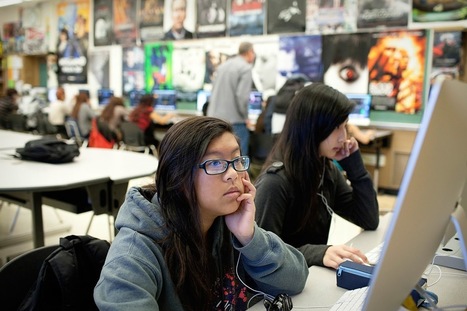

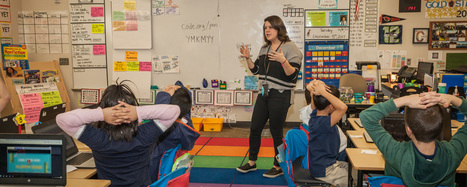
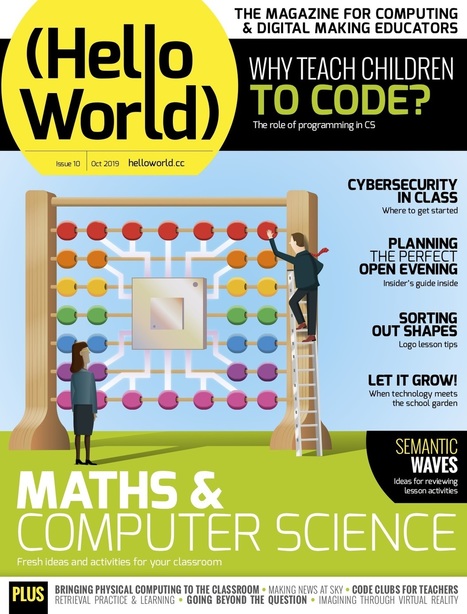




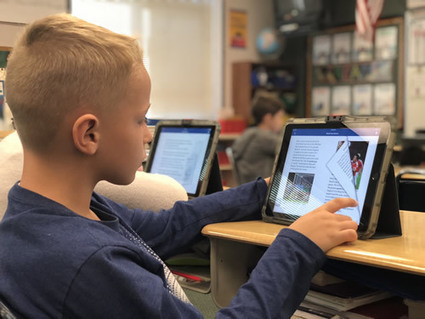
![Learn How to Teach Computer Science With MINECRAFT: EDUCATION EDITION [Infographic] | EdSurge News | iPads, MakerEd and More in Education | Scoop.it](https://img.scoop.it/B02duRsQ9njAcoR0rMNYaDl72eJkfbmt4t8yenImKBVvK0kTmF0xjctABnaLJIm9)

